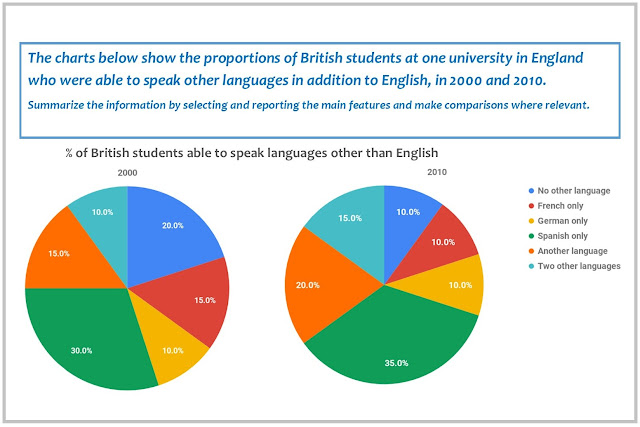10,000 hours of English
Being a teacher of English, I deal with tons of course books on a daily basis. The authors are doing an incredible job at making the course books engaging, so I inevitably draw a lot of inspiration from the materials. Sometimes a single sentence in the book can start a long train of thought. In this post, I want to give you an example of one such train.
Lesson 9A in English File Intermediate (Third Edition) centers around the topic of luck. In this lesson, the students read a text called "A question of luck?" which explains why certain people become extraordinarily successful and what factors contribute to their success. Have a look at the final paragraph of the text:
I don’t know about the specific number – 10,000 hours – but the theory makes a lot of sense for language learning.
When deciding to embark on a wonderful journey of learning English, many students pin their hopes on the teacher (after all, he or she is a qualified professional) and the course book (after all, it was written by a team of qualified professionals). Unfortunately, just going to classes and following a course book is not enough. You need to put in a lot of extra hours to become a successful language learner. (Don’t give me the old excuse of having very little free time. It’s lame and you know it.)
I now want to talk about how you can and should effortlessly increase the amount of time you spend on English. We’ll need to do a little math here. Let’s say you have English classes 2 times a week and each class is 1,5 hours long. That’s 3 hours of English a week. If you don’t do anything else, it’s just 3 hours. However, you can and should do the following:
- Do your homework. It gives you at least 1 more hour per week. I love giving my students enormous (in their words) homework. That’s at least 1-2 hours more. Add: 3 hours.
- Start your day with a TED talk. These are short – 15 minutes on average, which gives you around 2 hours more per week if you start every day with listening to a TED talk. Add: 2 hours.
- Read or listen to something in English on your way to work / school. Read a book if you go by metro or listen to an audio book if you go by car. Optimistically speaking, your way to work takes 30 minutes, multiply it by 2 and then by 5. Add: 5 hours.
- Watch a TV series and/or a film in English. Most episodes of most TV series are only 20 minutes long, but let’s say you pause from time to time to check vocabulary, so it’s 30 minutes. One episode each day multiplied by 5 working days gives you 2,5 hours. At the weekend, watch a film. Add: 4,5 hours.
- Do a little extra speaking. Find an English-speaking partner online, speak to your friends, join a Speaking Club. Add:1,5 hours.
- Let’s throw in an additional hour for times when you check some vocabulary and/or make notes. Add: 1 hour.
This concludes my train of thought. I hope you inevitably drew some inspiration from it.
This post was featured on Oxford University Press English Language Teaching Global Blog. Just bragging.





Comments
Post a Comment